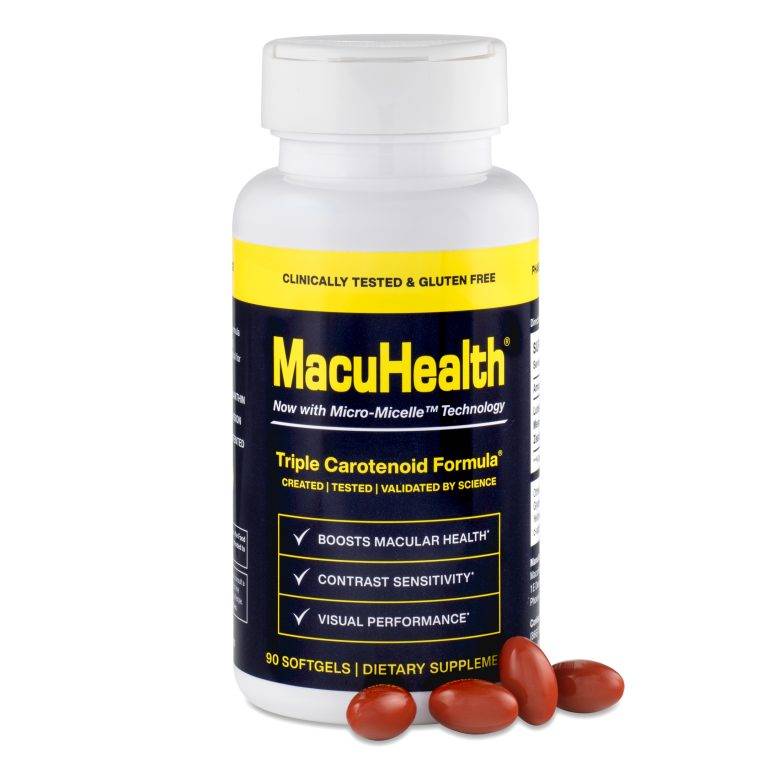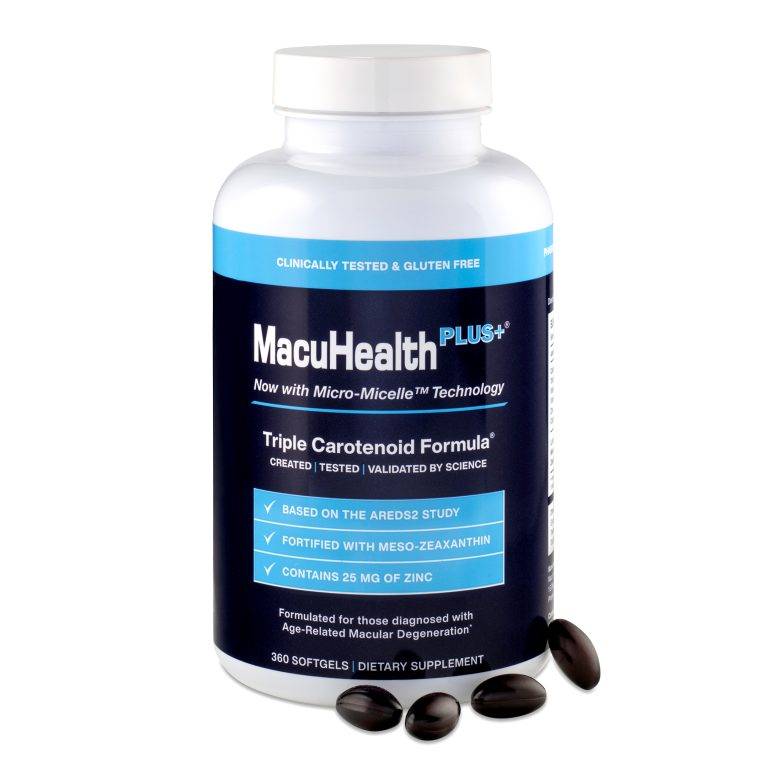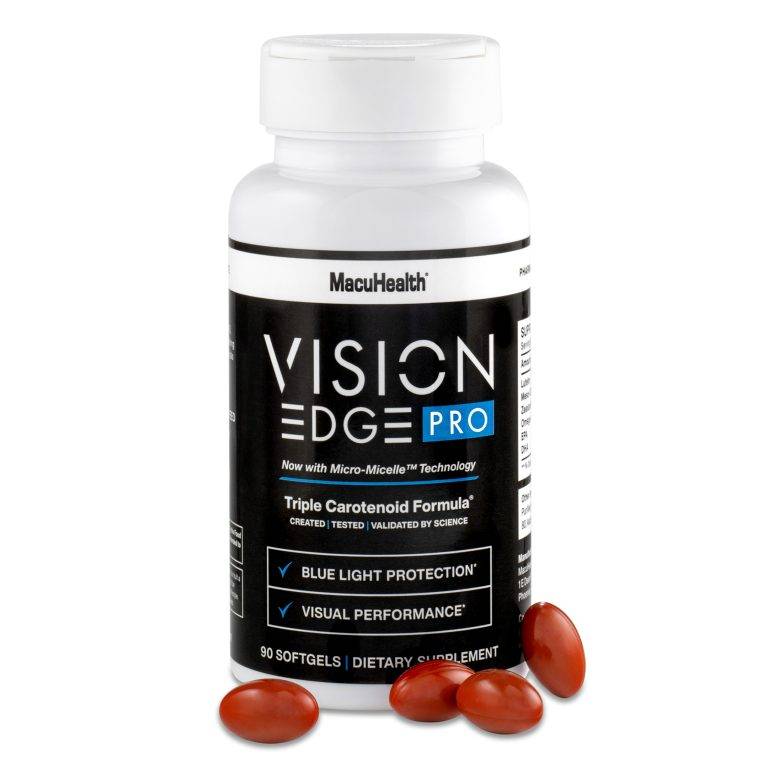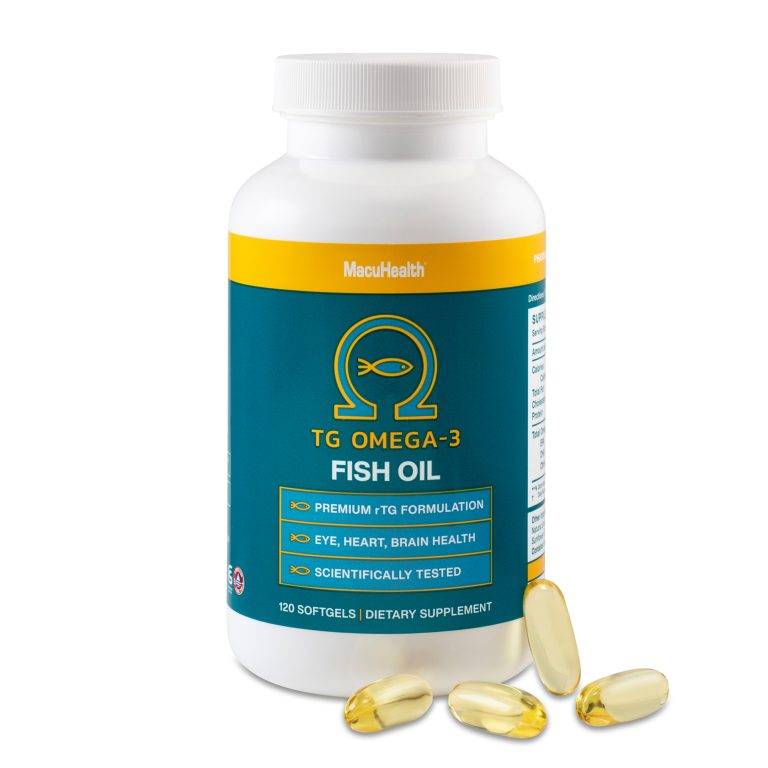
Written by MacuHealth
Reviewed by Jim Stringham, Ph.D.
Macular carotenoids are powerful and specific antioxidants that our body uses to fight a battle against free radicals in the retina. Since the body doesn’t synthesize these special nutrients – Lutein, Meso-Zeaxanthin and Zeaxanthin – on its own, they must be obtained via dietary consumption of dark leafy greens and other colored fruits and vegetables.
Often, diet isn’t enough, and low intake of these crucial nutrients can result in damage from oxidative stress and inflammation that can lead to age-related macular degeneration (AMD), the leading cause of vision loss in those over 60 years of age.
The problem is that the average person consumes only one to two milligrams of macular carotenoids daily. But research has proven the body receives significant benefits when taking between 20 to 25 mg daily. Additionally, modern farming conditions have caused the nutritional value of fruits and vegetables to decline.
But scientific evidence overwhelmingly shows that our eyes need Lutein, Meso-Zeaxanthin and Zeaxanthin to experience enhanced visual performance, protect our eyes from blue light and manage AMD risk and symptoms. At what age should we start taking these vital ingredients? We’ll look at when is a good time to start taking eye vitamins.
We’re relying more on our computers, tablets and smartphones. The drawback is that these devices emit shortwave frequencies (i.e., blue light) with high energy that can damage the macula over time. Additionally, there are other unwelcome symptoms that exposure to blue light can cause:
Lutein, Meso-Zeaxanthin and Zeaxanthin benefit eye health and protect the retina from blue light-induced damage by increasing your macular pigment density. In other words, they act as a defensive wall to lower the risk of various eye diseases and undesirable symptoms that can arise due to blue light exposure. When found in an extremely pure and highly bioavailable form, as they are in eye vitamins like MacuHealth, they can also have the following benefits:
As we get older, the risk of developing eye disease increases. We need carotenoids to build macular pigment and protect our vision. These diseases include cataracts and AMD. By enriching macular pigment with eye vitamins, you can help manage AMD symptoms and save eyesight in a diseased eye and, in more advanced forms of the disease, possibly delay the onset of the disease in the other eye.
Additionally, when post-cataract patients have had their crystalline lens removed, it takes out the natural blue light filtration normally provided by the lens. The replacement lens is clear. While good in many ways, the new lens allows blue light to pass through to the retina, making it more susceptible to damage. Taking an eye vitamin like MacuHealth can help to guard against this damage by building up the defense provided by macular pigment.
Have you ever tried to catch a fly ball with the bright sun in your eyes? Baseball players need strong contrast sensitivity, your ability to distinguish between an object and its background, to make the big play. And researchers and eye care professionals state that testing for contrast sensitivity is a better measure of your visual performance than the standard examination of reading letters off a chart. Good contrast sensitivity allows you to detect subtle differences in shading and more accurately track objects (e.g., a ball) moving against varying background illumination.
In almost any sport, there are many instances where faster visual processing speed is a great advantage. For example, it’s hard for players to predict where a rebound will go once it leaves the backboard. Also, hockey goalies must anticipate a puck’s trajectory when an opposing player makes a lightning-fast shot. But if you have high visual processing speed, you can react quicker, better predict where things will be at any given time and make better decisions as you play.
Sunlight and bright stadium lights can wipe out your visual field and wear out your eyes. Look at how much a quarterback squints in the fourth quarter – this is a sign that he’s struggling with glare from the sun and stadium lights. Ocular fatigue factors into how well players perform, and glare makes it hard to judge the small but vital details. Several studies have demonstrated that the more you build up your macular pigment level, the greater benefit you’ll experience in terms of glare – both seeing through glare from bright lights and recovering from exposure to bright light.
Eye vitamins such as MacuHealth and MacuHealth Plus+ are specifically formulated with Meso-Zeaxanthin, Lutein and Zeaxanthin to enrich and restore macular pigment to optimum levels with continued use. And they’re safe and recommended for anyone, no matter their age.

Formulated by scientists and clinically proven to support eye health for both healthy and diseased eyes.

Based on the AREDS2 formula with 10 mg of Meso-Zeaxanthin and reduced levels of zinc for the ultimate defense against AMD.

Created for those wanting to protect against blue light and improve visual performance for everyday maintenance.

Sourced from small, open-water catch fish from the coast of Chile, TG Omega-3 provides customized dosing for patient specific needs.